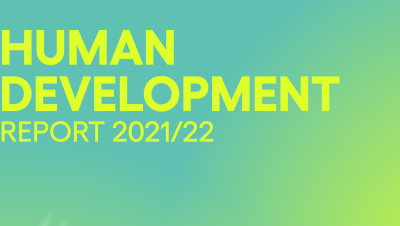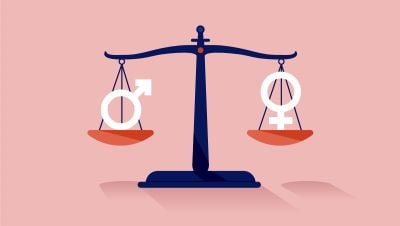The 2016 Human Development Report (HDR) will be the 25th edition. Over the last quarter of a century, these reports have extensively influenced the development discourse, provided a strong lens to assess human well-being, and informed policy making.
But the world today is different from 1990. Impressive human progress has been achieved in reducing poverty, expanding access to education and on many other fronts. Yet advances have been uneven and significant human deprivations still persist. Meanwhile, some challenges have become more pressing, not least climate change. Deepening globalization and rapid technological change offer new opportunities, but they also pose a risk of exclusion. As the 2030 Agenda for Sustainable Development states, there is a critical need for a transformational change in development, so that no one is left behind.
From a human development perspective, the time has come to focus on three fundamental aspects: extending the frontiers of the paradigm, reviewing how human development is measured; and revisiting the policy options linking various strategies and focusing on institutions at both country and global level. This is why the theme of the jubilee HDR is 'Human Development – the Way Ahead'.
Extending the frontiers of human development thinking
The 2016 report aims to extend the frontiers of human development thinking by looking into those conceptual matters that were not made explicit in past reports. This includes uncharted issues such as:
- the balance between individual and social choices (e.g. how the individual choice of covering the face on the basis of personal religious beliefs may not be consistent with the norm that the broader society holds);
- the hierarchy of choices (e.g. how some people may value a set of choices over others); and
- the interconnectedness of choices (e.g. an individual’s choice to travel has an impact on the environment.)
Equally important in expanding the frontiers of this framework is to look into themes from previous reports that deserve further exploration in the light of today’s changing world - issues such as human security, participation and environmental sustainability; and into aspects that are critical for transformational changes in development – normative matters such as social justice and fairness, tolerance and non-violence, diversity and equality.
When assessing human development progress and development results, the focus will be on how to ensure that the most disadvantaged benefit fully from human development progress and on whether those who have escaped basic deprivations continue to advance. Assessing not only the quantity but also the quality of human development progress is also critical in this endeavor – for example children may complete primary education, but this does not represent sustainable human progress unless they can read or write properly. The 2016 report will also review some of the existing composite indices and complement the human development assessment by considering measurement questions related to environmental sustainability, human security, participation, etc. It will also investigate how measures of well-being and happiness (such as the Gross Happiness Index) may add new insight on human development. The objective is to advance towards a more comprehensive, concise and coherent way to measure human progress.
On the policy front, the report will seek to define a unified framework for policy analysis anchored in the human development approach, emphasizing not only what policies are necessary but also how they could be implemented. It will also take both a normative and an instrumental approach towards issues like social justice, fairness, equality, tolerance, cultural diversity, non-violence and democracy. And, as a shared vision of humanity also calls for a collective effort for enhancing human development in an inclusive and sustainable manner, the report will pay attention to the state as well as country-level, regional and global institutions.
Human development and Agenda 2030
While the theme of the 2016 report is not the 2030 Agenda, we recognize that this global agreement will shape the development discourse and policies over the next 15 years. In looking for ways ahead, human development can be linked to this agenda in mutually reinforcing ways. The HDRs can make intellectual contributions and strengthen the policy options to achieve the Sustainable Development Goals (SDGs). Some human development indicators may be aligned to certain SDGs measures and could be used for tracking progress. Conversely, the commitment of 2030 agenda to leave no one behind can provide a framing tool to prioritize attention to certain human development dimensions and groups of people; and to a transformational change in development in the context of human development thinking, as noted above.
Both the human development paradigm and the HDR are at a turning point in their history. They have established a distinctive tradition and a strong track record in advancing conceptual thinking, measurement, advocacy and the practical realization of human development. At the same time, the development landscape in the world today – and in the foreseeable future – is different from what it was in 1990. The challenge is to leverage the gains in our knowledge and understanding to ensure that both the framework and the reports, while maintaining continuity with the fundamental principles and approaches, motivate positive changes in people’s lives, and remain relevant and useful towards achieving the 2030 Agenda for Sustainable Development. The 2016 report represents an intellectual exercise towards addressing that challenge.
The HDialogue blog is a platform for debate and discussion. Posts reflect the views of respective authors in their individual capacities and not the views of UNDP/HDRO.
HDRO encourages reflections on the HDialogue contributions. The office posts comments that supports a constructive dialogue on policy options for advancing human development and are formulated respectful of other, potentially differing views. The office reserves the right to contain contributions that appear divisive.
Photo credit: Skittle_kitten / Creative Commons


